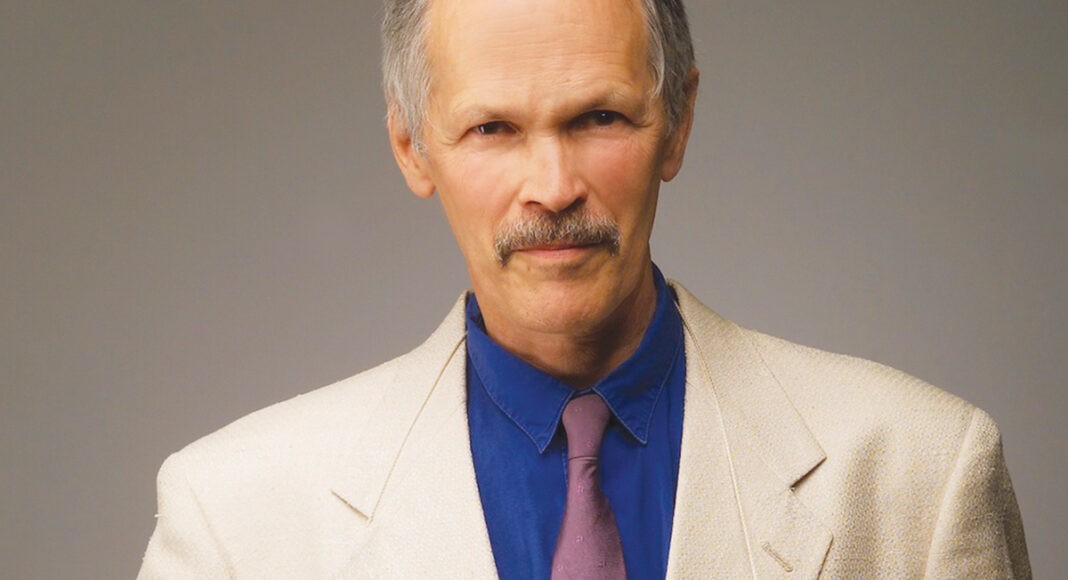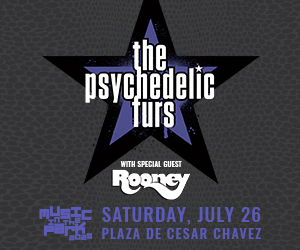The world of music is riven with rabbit holes into which composers, musicians and even fans often fall, never to emerge again. Veteran Santa Cruz composer Jon Scoville has not exactly avoided those holes—he’s just been able to find his way to the surface again.
Scoville’s astonishingly adventurous career as a composer is the centerpiece of a concert at Cabrillo College’s Crocker Theatre on Jan. 18 and 19, playfully titled “Scoville Units,” after the scale for determining the heat level of chili peppers. The show will feature more than a dozen Scoville originals, showcasing his embrace of styles from Balinese to tango to Brazilian, jazz and ballroom—and even a piece that touches on hip-hop, which he eventually labels simply as “urban.”
At the heart of the show, however, is Scoville’s decades-long work as the house composer for Tandy Beal & Company, which is run by his collaborator, muse, and spouse Tandy Beal.
Beal, one of the most prominent performing artists in Santa Cruz County for the last 40 years, is eager to bring Scoville into the spotlight.
“(This concert) is Tandy dragging me out of my nice little hideaway, where I can make music without any disturbances, and saying, ‘People need to hear what you’ve been doing for 40 years,’” says Scoville.
Joining the couple in celebrating Scoville’s restless musical spirit will be pianist Ivan Rosenblum, clarinetist Jeff Gallagher, the Premiere Saxophone Quartet, and dancers such as Rita Rivera, Mischa Scott, Molly Katzman, Paula Bliss, and many more.
“When we first started talking about this,” says Beal, who will perform a solo piece in the show, “it took about two years to convince him to come out of the background and say okay to it.”
Beal says the celebration of Scoville’s music will continue later this year with a new piece for theater and dance, and in 2021 with a re-staging of Tandy Beal & Co.’s signature work, the mesmerizing afterlife show Here After Here.
Growing up in Connecticut as the son of a Presbyterian minister, Scoville sang in the church choir from a young age, internalizing the stately tone of traditional Protestant hymns. But, as a budding composer, he quickly wandered farther afield.
“My sister, my mother, and my grandmother all played piano,” he says. “And I’d be upstairs listening to Duke Ellington, ’40s and ’50s jazz on the radio. I would turn off the radio and my sister would be playing a Bach partita. I was between these two poles of beautiful music. Early on, I got a taste for the wide world of sound, and I was not very judgmental about it. I listened to all of it.”
Scoville and Beal met in 1963 and moved together to California three years later. “I wanted to hear what all the noise was about,” he says.
They planned to land in San Francisco, but came first to Santa Cruz and never left. (Scoville was, in fact, the first employee hired at the new Bookshop Santa Cruz). He and Beal have lived together in the same house near Felton for more than 40 years.
At the time that they arrived, Santa Cruz was developing as a haven for new, adventurous, even avant-garde forms of music as the site of the Cabrillo Music Festival, and later New Music Works, and particularly as the home of internationally prominent composer Lou Harrison. Scoville and his insistent eclecticism come out of that culture.
“Lou was not a strict musical influence on my life,” Scoville says. “But he was a spiritual influence on my life. His sense of freedom to dive into other cultures and find what he liked in them set a standard for me.”
Another thing that Harrison and Scoville had in common was instrument building; Scoville even published a book on making instruments. But mostly, he buttered his bread with composing. For 40 years, he served on the faculty at the University of Utah, where he lived for four months out of the year. The rest of the year was spent in Santa Cruz, often collaborating with Beal and her dance troupe.
“Mostly, it’s Tandy,” says Scoville when asked about his productivity. “Having your muse in the next room is an advantage. If she likes what she hears, she slips a chocolate bar under the door.”













